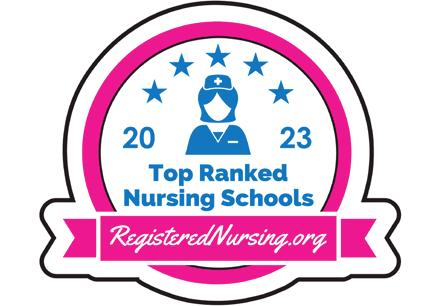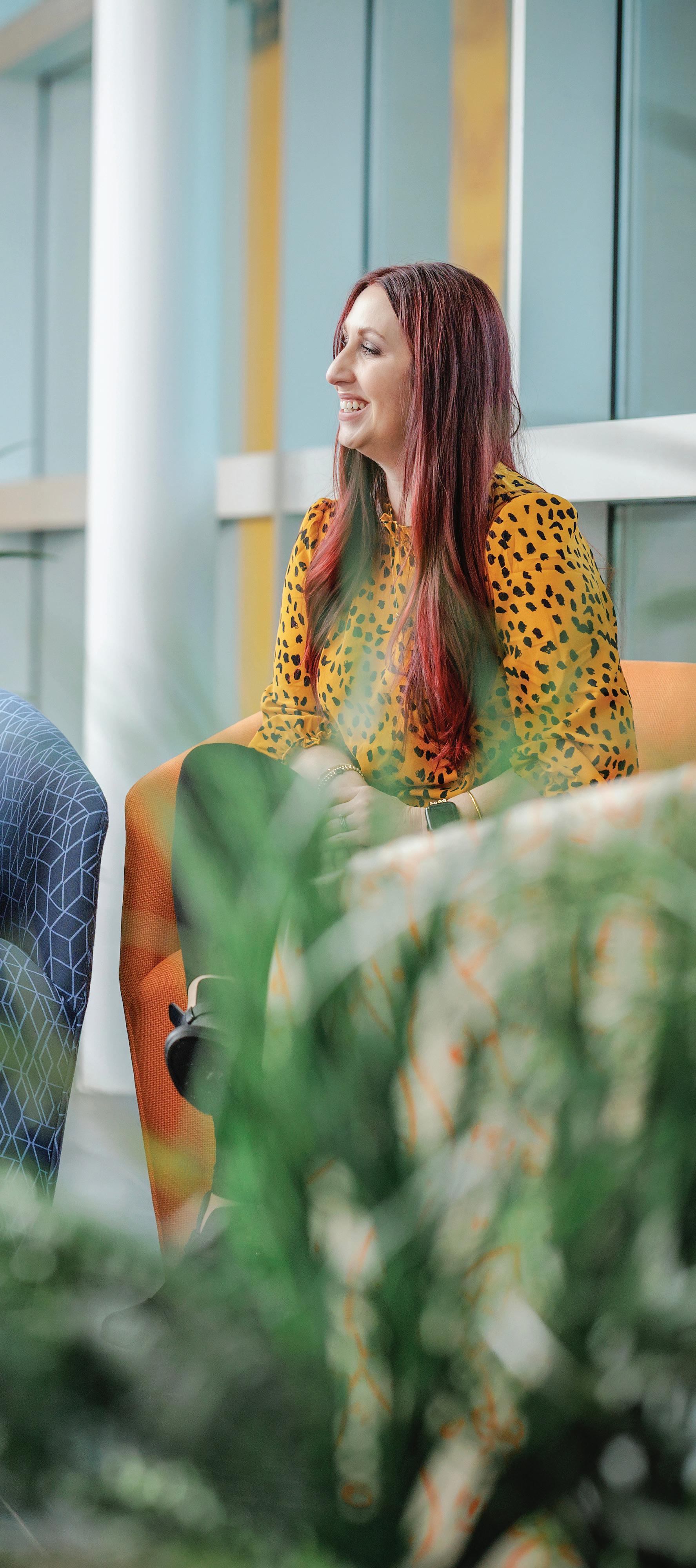
10 minute read
Sig_ns
TOOMES, YOW REUNITE AT THE PERFECT TIME
By Megan Crotty
Advertisement
One unique feature of a community college is that no one takes a straight line to get there in the first place. Not the students, not the staff, not even the faculty. The beauty of community college is that often that strange route comes full circle.
In January 2022, Tiffany Yow was driving to work, talking to her mom, hoping she had made the right choice. Yow had just spent four-anda-half years as a hospice nurse, taking care of patients who were facing death head-on. Now, she was going to bring new lives into the world as a mother/baby nurse at Cone Health. But she still needed a nod from Mom.
“I was talking to her,” Yow said. “ ‘I hope you know I’m making this change, and I hope you approve of it.’ I asked for my mom to give me a sign.”
That same day, Randolph Community College Nursing Instructor Gina Toomes was at the hospital with her daughter, Lea, who was expecting her second child — one that she had waited 14 years for. Toomes needed a sign to know mom and baby were going to be OK. °°°
Nursing wasn’t always top-of-mind for Toomes or Yow, but both were inspired by their dads to change careers after they had already started families.
Toomes’ first job was in banking, working in a main office helping with consumer loans in the accounting department. Still, she spent a lot of time in medical facilities as her dad was diabetic, and her grandmother battling congestive heart failure. Toomes’ last banking job was as a purchaser, but her job moved to Miami, Florida.
“That was my ‘in’ for going back to school,” she said. “I had been wanting to be a nurse.”
Going back to school was not only daunting but also expensive. When her dad passed away, he left Toomes money to live on while she went to school. So, at 40-yearsold, she joined her daughter in the college student ranks.
Toomes went on to graduate from Forsyth Technical Community College and Winston-Salem State University with degrees in nursing before getting her master's in Nursing Education from Liberty University.
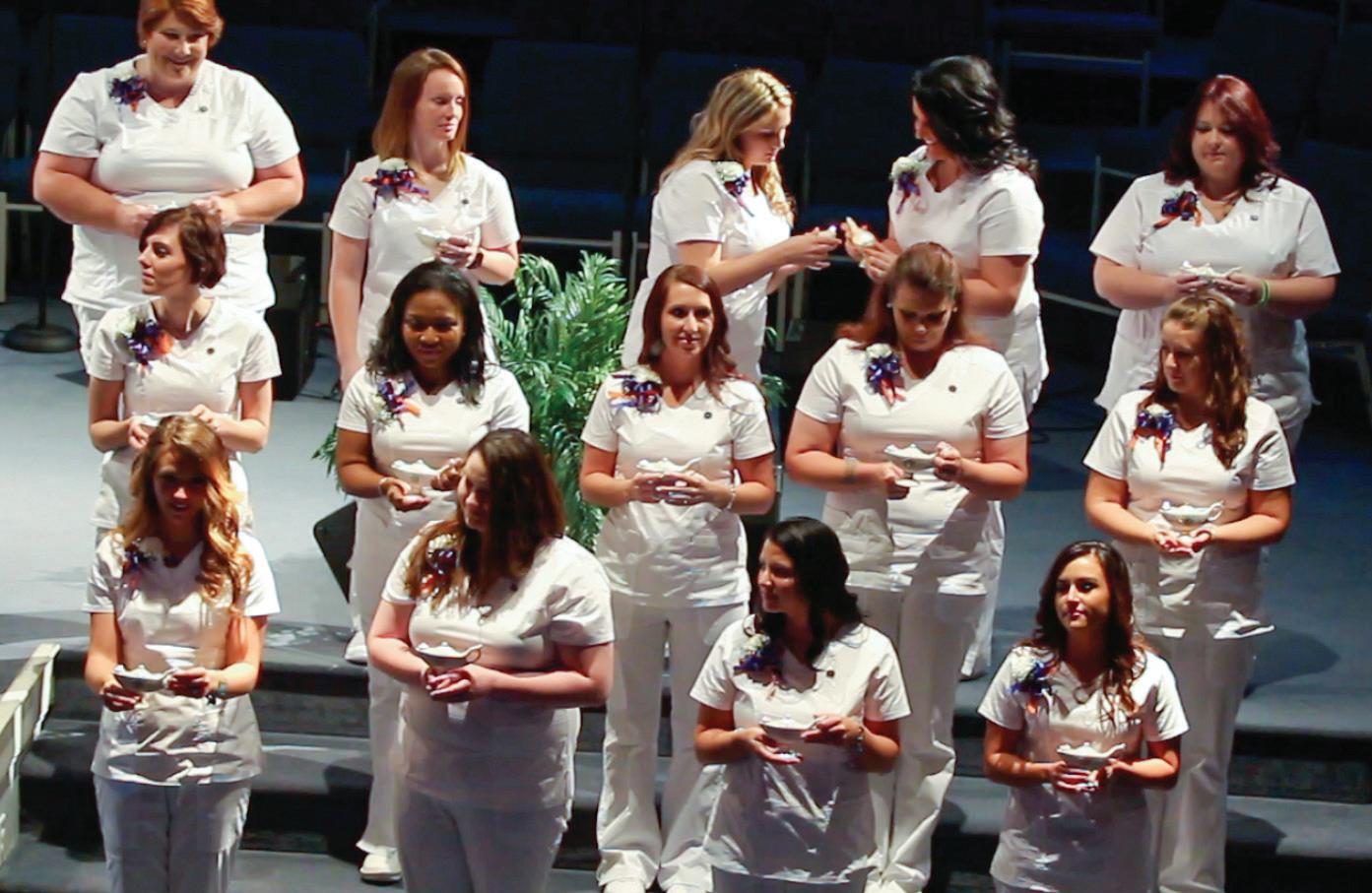
“He didn’t get to see me graduate,’ she said, “and I’m a daddy’s girl.”
Yow’s first career was in cosmetology. She had no desire to be a nurse like her mom.
“It was funny because I was in hair school, and I was afraid to do a haircut,” she said. “My mom was like, ‘Tiffany, you're not going to kill anyone. You might just mess up their hair.’ But then when I went to nursing school, it was totally different. ‘Oh! So, this is what you mean.’ ”
What sparked Yow’s interest in nursing was visiting her dad at the VA hospital.
“He has a really bad cardiac history,” she said. “I was at the VA hospital visiting him and I was just like, ‘I think I want to do this.’ ”
So, as a single mom with two kids in daycare, Yow enrolled at RCC. In order to afford college, Yow lived with her mom and had a full-time job. When she had to cut back on her hours to keep up with schoolwork, an instructor told her about nursing scholarships available through the RCC Foundation.
“If it weren’t for the Foundation and all of my financial aid, I wouldn’t have been able to afford it,” she said. °°°
Toomes worked in the ICU at Randolph Health for several years, but the 12-hour shifts started taking their toll, and she knew she didn’t want to go into administration.
“I didn’t want a pager on my hip 24/7,” she said. “I really did want to be a nurse practitioner, but I was so old to begin with. I felt like I needed something for retirement.”
In 2015, Toomes was hired at RCC as a lab instructor in the Nursing program where she met Yow, who appreciated Toomes’ toughness.
“She’s honest,” Yow said. “With the [simulations], you can play back and see your mistakes. That's how I would learn — replaying my mistakes. I really liked the criticism. So, I took to her in lab. Some people just can't handle it. That's how I learned. It does hurt, though.
“Hands-on and mean instructors. That’s my thing.”
Toomes talked about a student who had a patient in the simulation who had low potassium, and she gave the patient a diuretic. Toomes sent the patient into Ventricular tachycardia.
“She said, ‘I’ll never do that ever again,’ ” Toomes said. “And so, she always checks the potassium before she gives the medicine now. She doesn't forget that. That has stuck with her. I could have put the patient in cardiac arrest, but I didn't want to scare her that bad. It just gives you a lesson that you'll never forget because you still have that feeling. And you would never do it in the real world. It's a good experience.
“The fourth-leading cause of death in America is medication errors. And now they’re holding us accountable. Now they’re going to send us to jail.”
Toomes continued to work in the ICU and teach until the COVID pandemic hit. Then, the ICU nurses moved to the emergency department (ED).
“I knew I wasn’t going to have enough time to train on the ED system,” she said, noting she was only there two days a month.
Toomes said she does miss patient care but teaching during clinicals has become a fast favorite. “That’s where I love to teach because it’s nursing,” she said. “That is nursing.
“In the clinical, not everybody can get a pneumonia patient, but here in simulation, everybody can. If you’re teaching about a particular aspect, everyone can get the same experience. In clinicals, you get what you would if you were a nurse. … I teach a lot of professional behavior, and I have a lot of life experience.”
Having Toomes as the foundation for her nursing career had a profound effect on Yow, who chose Toomes to do her pinning when she graduated.
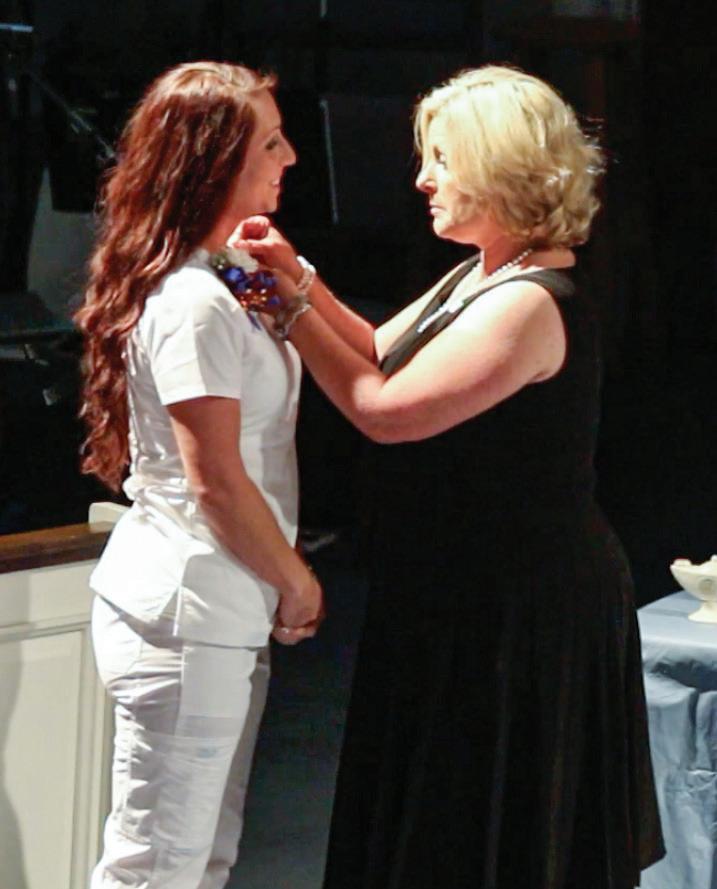
“I can’t say anything bad about my experience at RCC,” Yow said. “It taught me everything I needed to know to be successful. You may be a hospice nurse, but you still use those clinical skills all the way across.”
After RCC, Yow worked as a Hospice nurse for four and a half years.
“Something drew me to it,” she said. “Everyone was, ‘You’re crazy to go straight from nursing school to hospice,’ but I went in full gear. I wore many hats, and I did things they told me I’d never do. I just got the most experience I could.”
A year and a half into her job at Hospice, Yow’s mom was diagnosed with head and neck cancer.
“I learned all the things I need to know to be able to take care of her,” Yow said. “I met her care team. I chose her care team. I worked hand in hand with [her doctors and nurses]. I really think I was just guided because that was what I was supposed to do.
“It was life-changing, and I still bleed Hospice. It’s one of those things that you never lose the love for.”
“It’s just as important to watch someone come into this world as it is watching someone go out of the world,” Toomes added.
Neither nurse could have predicted the COVID pandemic, which was life-changing for both and career-changing for Yow.
Both nurses said the experience was scary.
While Yow was dealing with patients, Toomes and her coworkers were trying to handle a shutdown RCC and teaching online.
“We had some virtual simulations that would work really well,” she said. “We really tried to work with the students. It only lasted a semester where they didn’t go to clinicals. The graduating class of [2021] was really hit hard.
“They learned all their fundamental skills, and then COVID hit. If we had a January class, we would have probably had to defer them, and they would have had to come back in the fall to get the clinical piece because they wouldn’t have learned any fundamentals. I don’t know how they did it at other schools that have two semesters going on at the same time. There are things you can’t simulate.”
And Toomes said she knows first-hand how tough it can be for students to go 100 percent online.
“I did my masters online, and it was really tough for me,” she said.
On top of that, the pandemic was a mystery for those in healthcare at first.
“Not really knowing what kind of treatment to do for them, and then people were dying left and right,” Toomes said. “A friend of mine lost her significant other. He went in just for heart palpitations. He died in the emergency room. She couldn’t go in there. And she wasn’t next of kin. It was just awful listening to her talk about it.
“Then they started coming up with some vaccines, and some treatment and it just really made it a little less intimidating.”
Both nurses said they have had COVID and are still feeling the effects — and, of course, seeing the effects. And both said the profession saw many students jump ship when the vaccinations rolled out as many facilities were requiring vaccines.
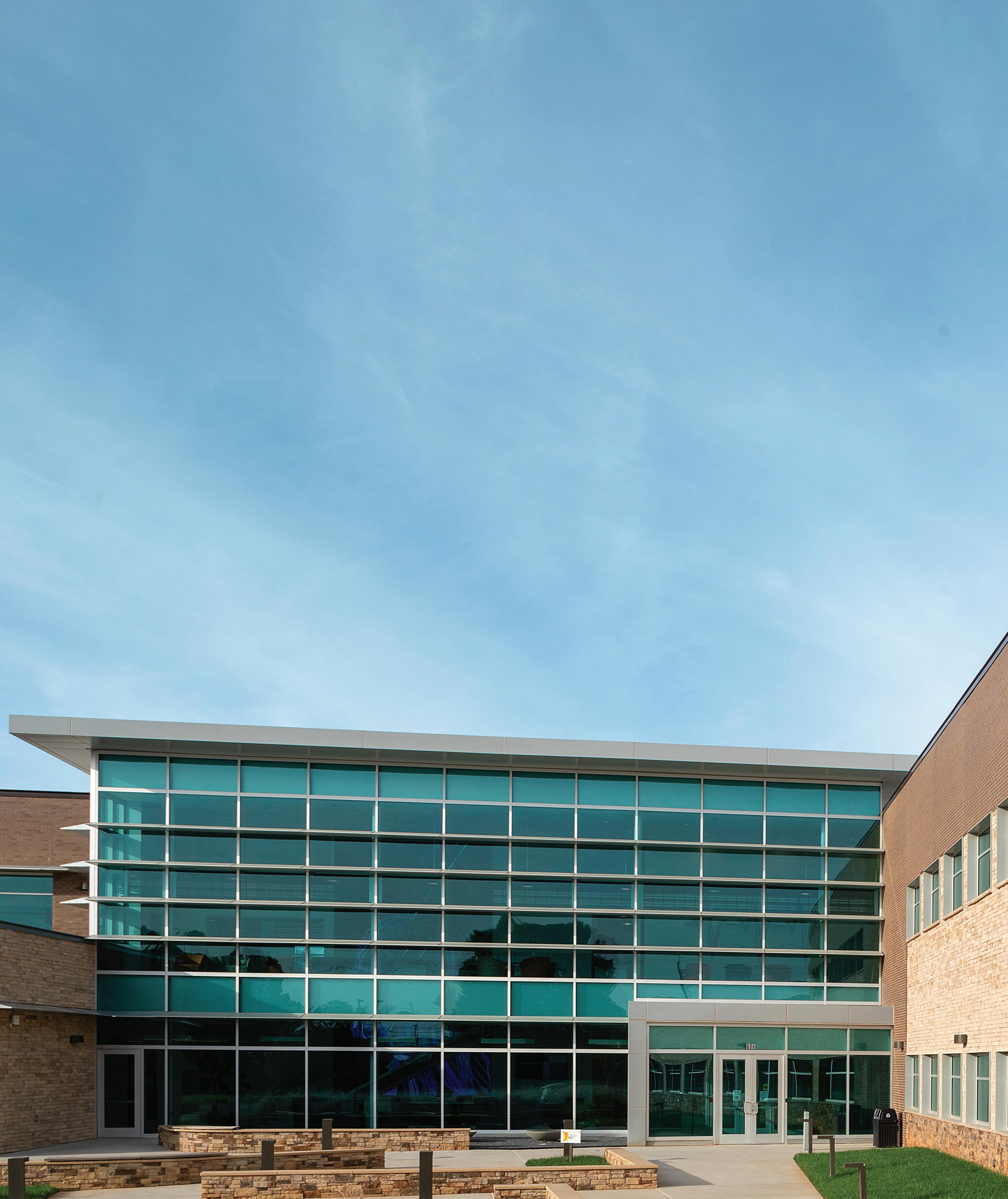
For Yow, COVID was the second punch in the gut. Two years earlier, her mom passed away in 2018.
“People were dying alone,” she said. “They would want to FaceTime their loved ones, and I would just pull out my phone. It was horrible.
“They wouldn’t let anyone visit our COVID patients. And then they decided that they would allow a one-time visit, and they had to be in the full-on moon suit. The other patients who we had to keep safe from COVID could have as many visitors as they wanted, but they had to sit in lawn chairs and talk through the screen. It took away everything I loved about Hospice — helping with the memories. I hated the memory that it left.”
(Continued on page 26)
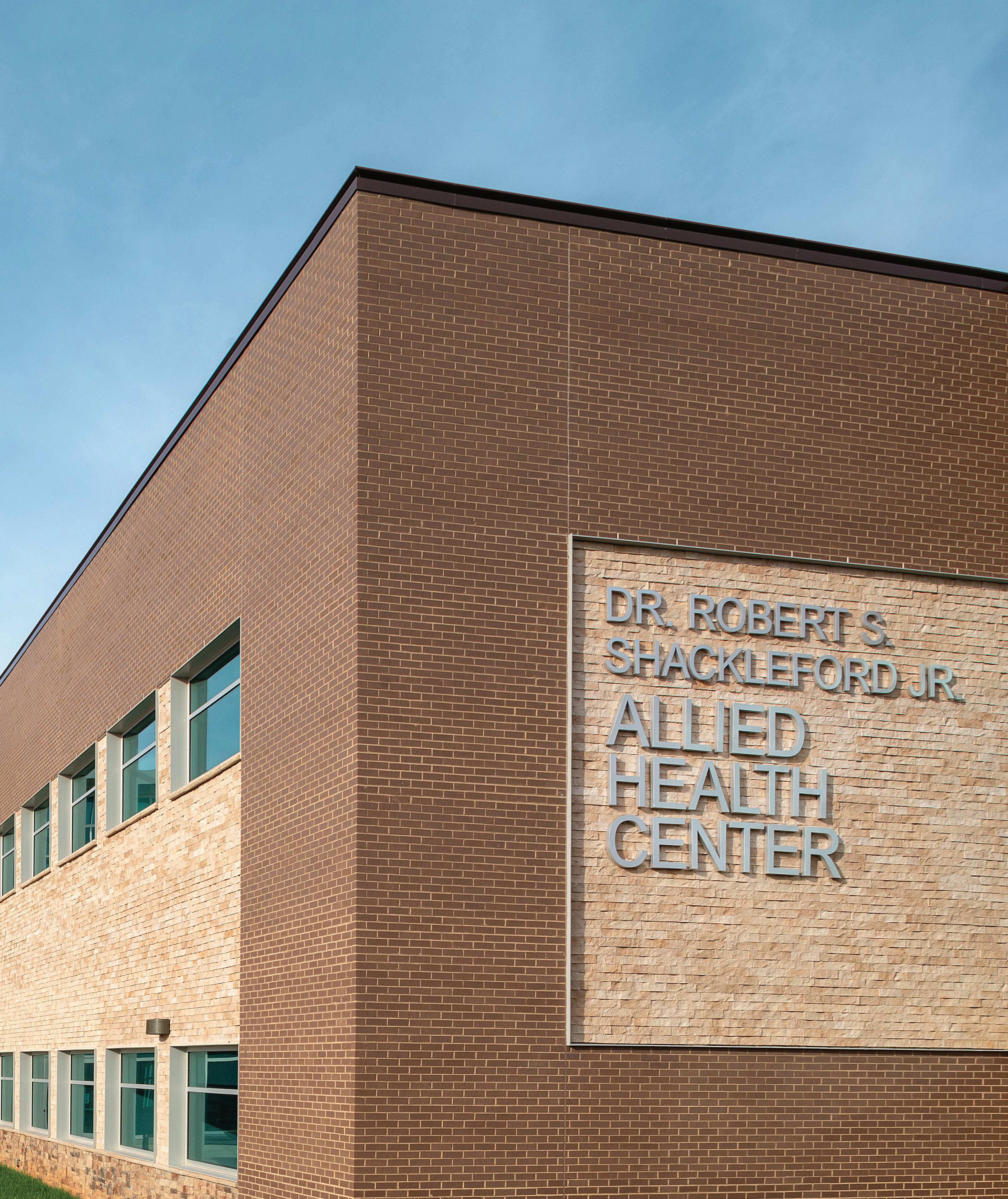
So, Yow decided to do what she had always wanted to do since she started nursing school — be a labor and delivery nurse. First, she wanted to learn more about infant care, so she was a mother-baby nurse for a year and a half before taking her current job at Cone Health.
“I was scared because I went from end of life, helping people pass, to doing CPR,” she said. “I had to completely change my whole mindset.”
And talk to Mom.
On her way to her new job for her first day of orientation, Yow asked her mother for that sign. When she arrived, she found out her preceptor was the charge nurse that day.
“She told me to just go with somebody who had already chosen her patient,” Yow said. “I was just tagging along. I introduced myself, ‘I’m Tiffany,’ and I heard, ‘Tiffany?’ I thought, ‘Oh, God. Here we go again. We’re not doing checkoffs, all right?’ ”
No, Yow wasn’t being given a test on her nursing skills. She was about to see a familiar, friendly face: Toomes.
“She looked at me, and she said, ‘You’re my sign. I asked for my mom to give me a sign,’ ” Toomes said. “I said, ‘Well, you’re my sign, too. I know [my grandson and daughter are] going to be OK.’ I started crying when she told me the story about talking to her mom. I was so thankful that I had her. I really needed her, and she, apparently, needed us to be the patient.”
Brand new to labor and delivery, Yow was still learning the ropes, but Toomes’ daughter, Lea, was a perfect patient, and so was the newest member of Toome’s family, Waylon. “It was like the seal on the envelope,” Yow said.
“Tiffany is amazing,” Toomes said. “Every single nursing job she’s been in, she excels. She acted like a seasoned nurse when she delivered Waylon. I’m so proud. I really needed her that day, too. She didn’t just need me.”
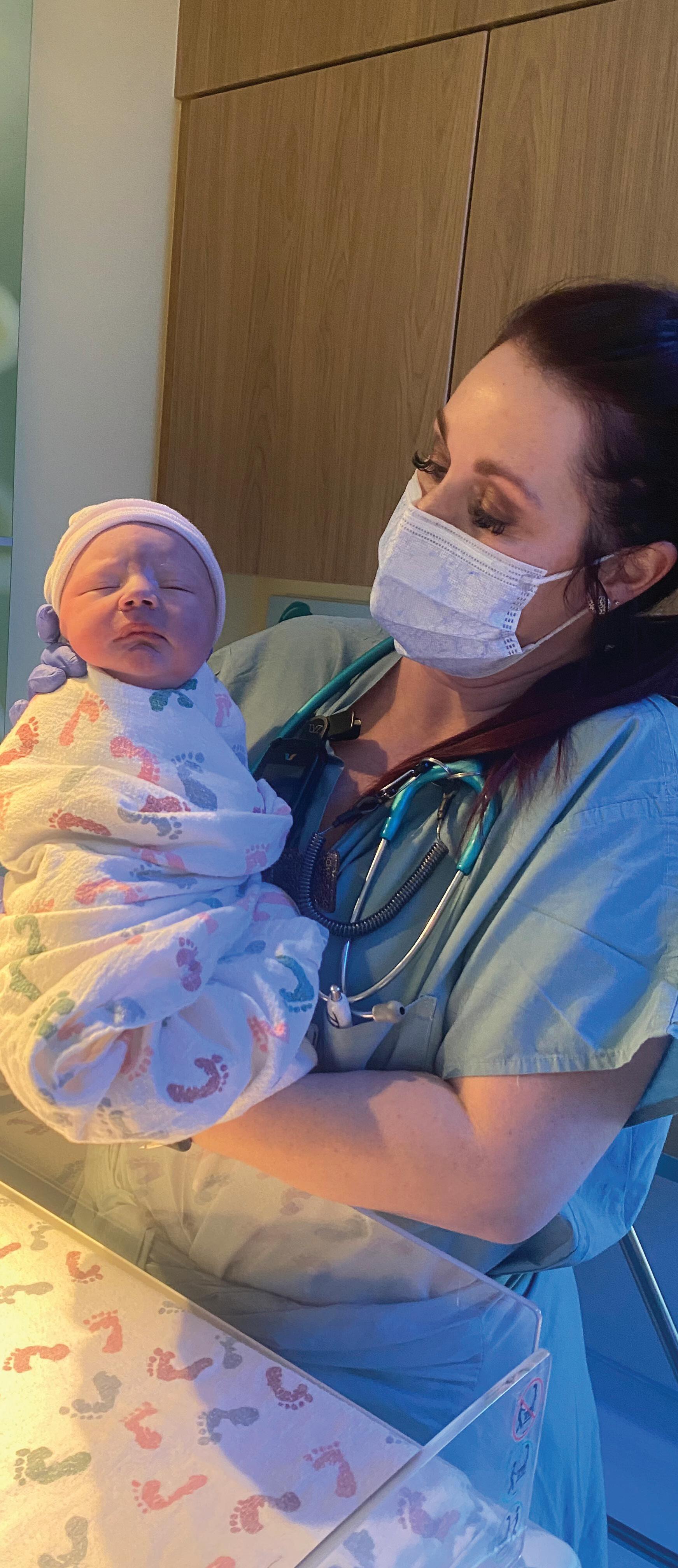
Randolph Community College’s Nursing program was recently ranked third in the state for 2023 by RegisteredNursing.org, an organization of RNs based in California whose mission is to “promote excellence in nursing by enabling future and current nurses with the education and employment resources they need to succeed.” It was the seventh nursing school and program rankings for the organization.
“This remarkable ranking indicates our faculty's commitment to student success,” Nursing Department Head Kim Kimrey said. “Our faculty strives to make a significant impact on the health and welfare of others by immersing our students in innovative and collaborative learning approaches, which we feel are integral in providing a quality education. I am beyond proud of our exceptionally hard-working students, faculty, and staff who have all contributed to this esteemed honor.”
According to the website: “Randolph Community College in Asheboro, North Carolina, is home to an accomplished nursing program. Nursing students learn to manage a community's diverse health care needs, including those of vulnerable or marginalized patients, with caring effectiveness.”
Western Carolina University had the top program, while Central Piedmont Community College ranked second.
For the rankings, RegisteredNursing.org obtained NCLEX-RN exam pass rates for all RN programs —
Associate Degree in Nursing (ADN), Bachelor of Science in Nursing (BSN), Direct-Entry Master of Science in Nursing (MSN) — state by state, requesting the previous five years of information. The NCLEX-RN exam is used by all state boards of nursing across the United States to help assess a student’s competency and is required for licensure.
Once the data was obtained, the organization filtered out programs that have closed or would be closing at the time of data collecting, programs with no pass rate data available for the previous one or two years, depending on the state and number of years of data available; and programs with only one year of pass rates.
The organization then analyzed the pass rates going back to the most recent years of data available up to five years. Schools’ pass rates were averaged together and weighted by the recency of the exam.
Other contributing factors weighed into the rankings included, but were not limited to tuition cost, average program length, geo coverage, further educational pathways and partnerships, and number of cohorts annually.
You can view the complete list at https://www. registerednursing.org/state/north-carolina/, or check out the ranking methodology at https://www. registerednursing.org/rn-ranking-methodology/.
